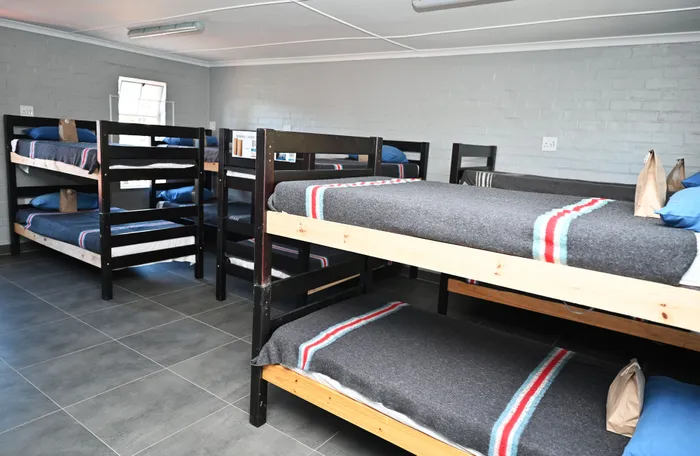Unpacking SA’s homeless crisis | How NGOs are helping to restore the dignity of the homeless

IOL spoke to local NGOs on the work they are doing for the homeless in the community
Image: U-Turn Facebook
The issue of homelessness is a harrowing reality for many in South Africa, where recent statistics from StatsSA reveal that the number of homeless individuals has soared to over 55,000. Faced with this escalating crisis, various non-profit organisations (NPOs) are stepping in to offer support and solutions that go beyond mere temporary relief.
In an effort to understand the challenges and the support systems available, IOL spoke to representatives from two prominent NPOs, U-turn and New Hope SA, who are actively working to change the narrative around homelessness in South Africa.
Stephen Underwood, from U-turn based in Cape Town, articulated a transformative framework designed to empower individuals and communities.
“For us, it’s all about overcoming homelessness. It’s not a ‘soup and a blanket’ approach that just provides welfare. It’s a phased journey that takes clients from struggling, often with substance abuse and living on the street, to being sober, employed, and housed,” he explains.
The U-turn programme is structured in four distinct phases aimed at guiding homeless individuals through a comprehensive recovery path.

Homeless shelter beds A homeless safe space in Durbanville equipped with 40 beds. Photo: File
Image: File
Get your news on the go, click here to join the IOL News WhatsApp channel.
The first phase, known as Change Readiness, focuses on meeting basic needs while establishing a foundation of trust. Clients receive essential items—such as meals, clothing, and temporary shelter—through a voucher system. This exchange helps initiate a relationship between clients and their case managers, forming the basis for further intervention.
In the second phase, Rehabilitation, individuals are referred to substance abuse treatment centres. U-turn not only covers the costs but also manages the logistics of these referrals, making it easier for clients to access the help they need during this critical period of recovery.
Work Readiness marks the third phase, during which clients transition into structured employment training. U-turn operates several social enterprises, including charity shops and a nursery, where clients gain work experience, learn practical skills, receive stipends, and gradually build self-confidence.
The final phase, Deep Therapy, addresses the psychological and emotional roots of homelessness. Through targeted therapy and support, clients are guided to understand and manage the deeper issues that may hinder long-term stability, ensuring they are prepared for sustainable employment and independent living.
“If you get someone sober and you get them a job and a house, if you don’t deal with that root cause, you’ll end up struggling in the future again. Our therapy is trying to deal with that root cause, that trauma and the issues that cause someone to become homeless in the first place,” Underwood explains.
The length of this comprehensive journey typically spans one to two years, culminating in clients securing stable employment and independent housing.
In alignment with this holistic approach, New Hope SA operates a second-phase residential programme tailored specifically for men transitioning off the streets. Dylan Groep, a representative from New Hope SA, emphasised the importance of a structured approach to reintegration. “They have to be clean for three months before joining our programme. We want to take a holistic approach, helping them discover their potential and re-engage with society,” he states.
New Hope SA requires candidates to meet specific criteria before joining, including an interview and an assessment by a social worker. Once admitted, participants receive comprehensive support such as counselling and mentorship. Groep notes that although many of these men face serious challenges, they also possess untapped potential that the programme seeks to cultivate and empower.
As South Africa grapples with the complex issue of homelessness, organisations like U-turn and New Hope SA are pioneering essential programmes that not only offer immediate assistance but also foster long-term reintegration into society. Their innovative approaches highlight that combating homelessness requires more than temporary fixes; it demands a dedicated commitment to transforming lives.
IOL
Get your news on the go, click here to join the IOL News WhatsApp channel.
Related Topics:
